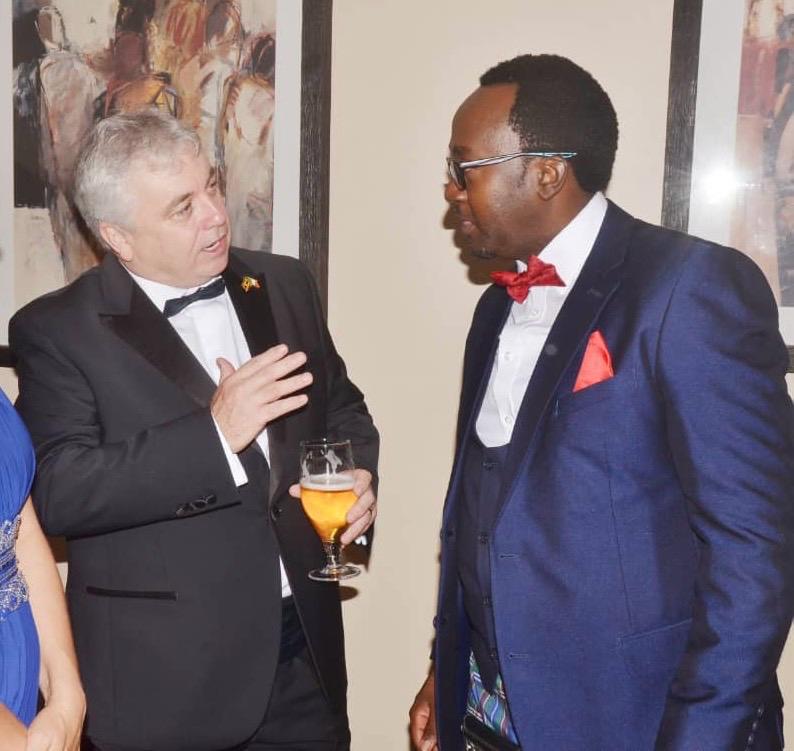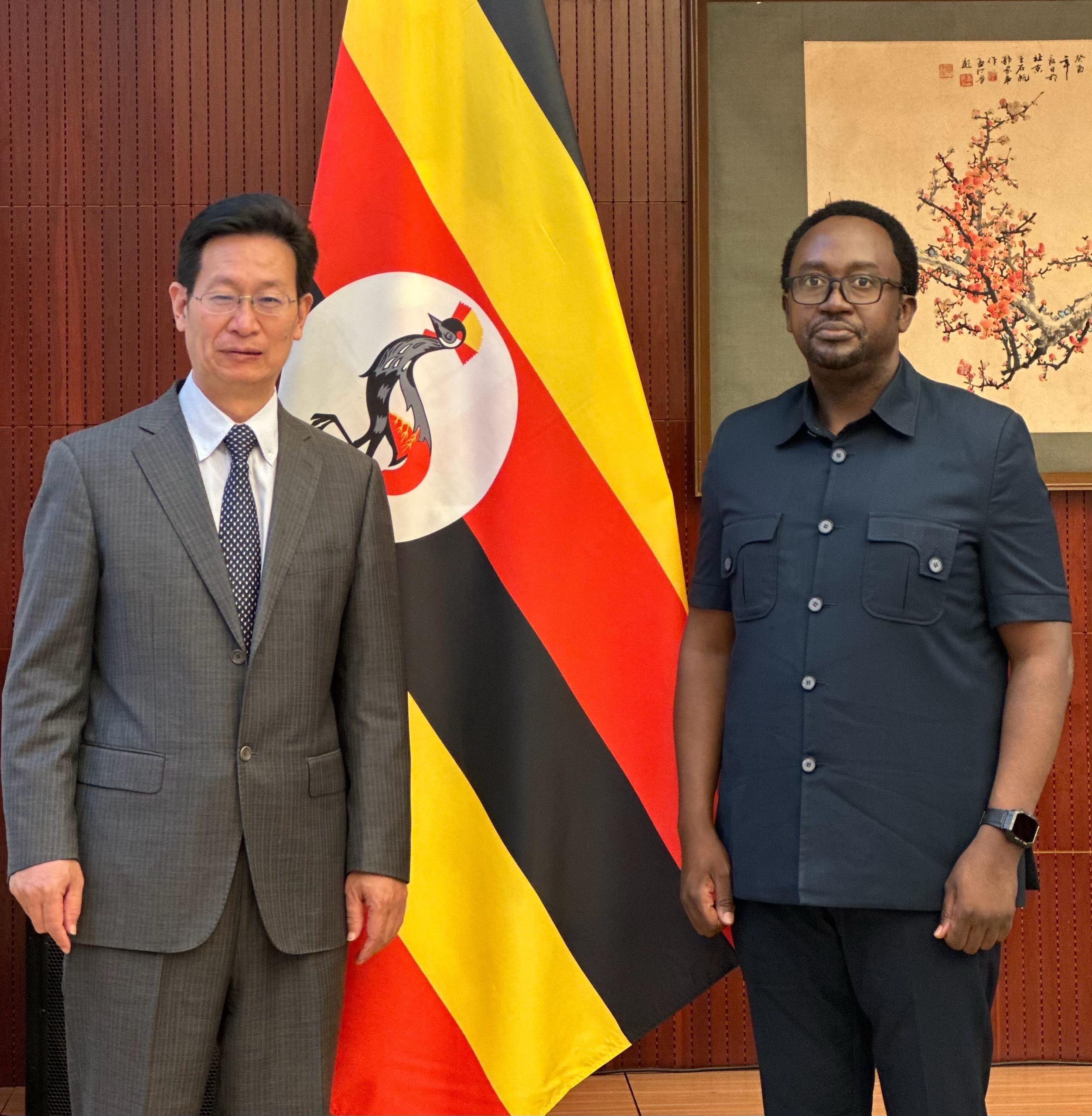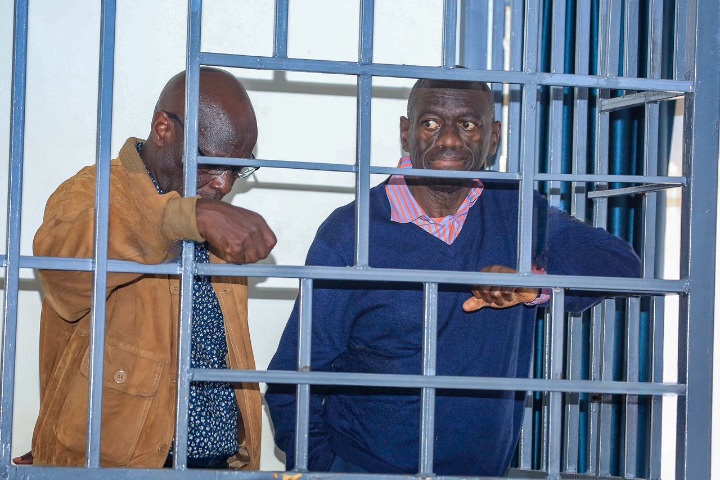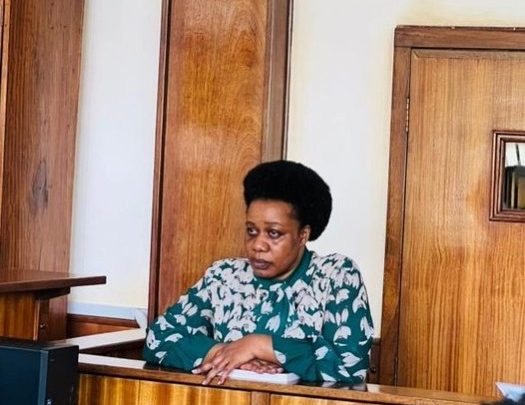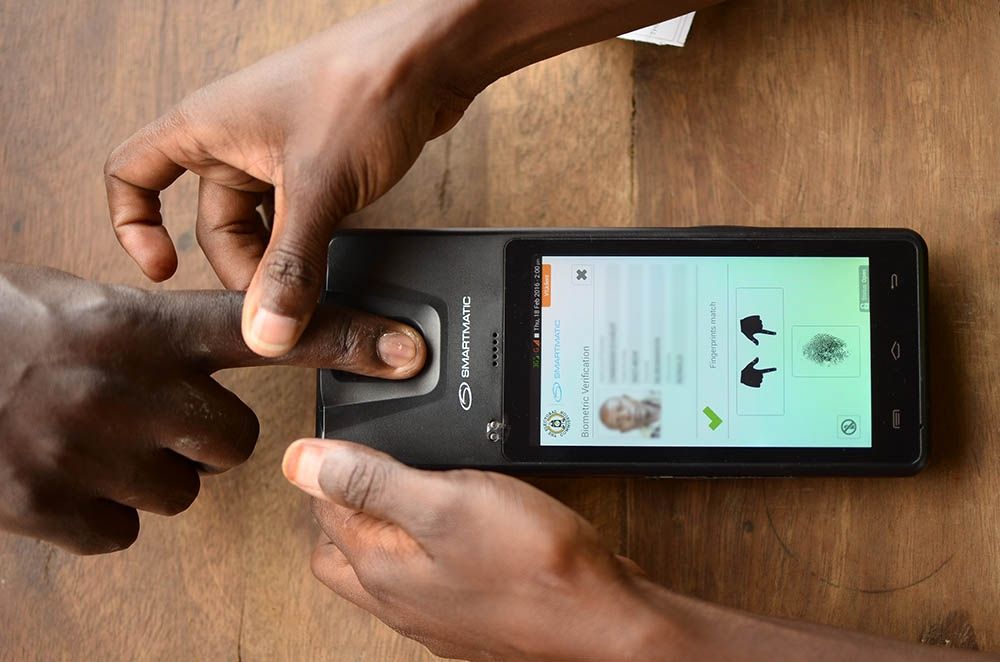In 2020, Kevin Colgan arrived in Kampala quietly. No fanfare. No motorcade. Just a deep sense of purpose.
One morning in Karamoja, he stepped onto the dusty ground.
The children and the elderly ran towards him, some barefoot and smiling. He didn’t wave from a distance. He wore the Karimojong traditional garb. He walked to them. Knelt. Listened. Promised. That was Colgan.
He wasn’t just the Irish ambassador to Uganda. He was a believer in people. A friend. A partner. Uganda didn’t just host him—he became part of it.
This wasn’t his first time here. He had been in Uganda in the 1990s, long before returning in 2020 for a second tour. Back then, perhaps he was just another Irish engineer. This time, he was unforgettable.
Over four years, Kevin has not just served in Uganda. He has immersed himself. He has walked in the villages. Sat with elders. Spoken to mothers at health clinics. Played golf on Ugandan greens. And shared meals in homes far from diplomatic halls (as much as he has hosted unforgettable receptions).
In places like Karamoja, he helped build a classroom block in Moroto. Delivered mattresses to street-connected children in Napak. Laid the foundation for the region’s first blood bank. Not because cameras were rolling. But because he believed no child should die for lack of blood.
Every gesture was quiet, but deeply meaningful. His actions spoke with more volume than any speech.
Ask around, and you’ll hear it: “Mukwano gw’abangi” (A friend of many).
Kevin made time. He remembered names. Returned calls. Sat through long community meetings and always stayed present. He was as comfortable in boardrooms as he was in classrooms. And people trusted him—because he meant what he said and did what he promised.
Education was his passion. Over and over, he pushed for Ugandans to access higher learning in Ireland. The Ireland Fellowship Programme grew under his watch. Not just in numbers—but in meaning.
He saw every scholar as an investment in Uganda’s future. Not just another slot filled. He believed that once educated, Ugandans could return home and help transform their country. He made sure they were followed up, valued, supported.
Kevin wasn’t drawn to grand pronouncements. His diplomacy was personal. He built relationships, not headlines. Made calls, not noise.
When communities voiced problems, he saw possibilities. He looked for solutions, not someone to blame. If one door closed, he knocked on another. And another.
There was no arrogance in him. No rush to judge. Just a quiet, confident drive to do right.
Even in gatherings with fellow diplomats, Kevin stood apart—not for dressing differently or speaking more loudly, but for his depth. He carried sincerity like a badge. Not forced. Not flashy. Just honest.
His departure has triggered something rare in diplomatic circles—emotion. Real emotion. Not just protocol notes or official farewells. But genuine tears. Countless lunches, gifts, tributes. Because he didn’t just work here. He connected. And that’s not easily forgotten.
The classroom blocks he supported still stand. The scholarships continue. The blood bank will serve generations. And the friendships he built remain timeless.
He heads to Serbia next. A different continent. A new assignment. But Uganda will remain his story of heart.
Let other ambassadors in Uganda take note. Kevin’s legacy is not in budgets. It’s in how he made people feel. Seen. Heard. Valued. He showed that diplomacy is not just about flags and receptions. It’s about sitting with communities. Asking honest questions. Following through.
His way worked. Steady, thoughtful. And full of the joy of a golfer who has sunk a hole-in-one.
Kevin Colgan is not just completing a posting. He’s completing a masterpiece of what it means to serve with soul.
So let his story be a reminder—to diplomats, government officials, and all who wield influence: power is best exercised with humility. And true leadership, with kindness.
Kevin leaves. But his example remains. Uganda has been lucky to have him. And those who follow him now know what excellence looks like.
He didn’t just represent Ireland. He represented possibility. And in doing so, he gave Uganda more than friendship. He gave it his heart.
The author is a commissioner at the Uganda Human Rights Commission (UHRC).



